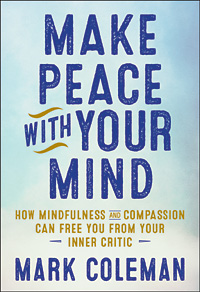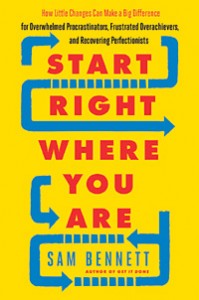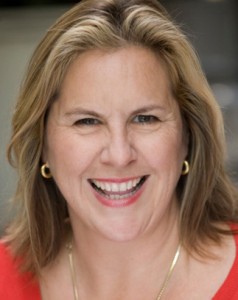Guest post by Ralph Masengill
Want to be very successful? Here is a simple secret few take advantage of in their personal or business life. You will be a true winner only if you are:
1. Willing to take a calculated risk and endorse positive change on a regular basis.
2. Learning how change affects our emotions and our feelings.
Let’s take a short journey together.
What we are talking about is understanding the risk of change. Why is it so important that we know about and understand change? We humans, and there are no exceptions, are constantly involved in change. Change never stops. It is always constantly going on in us and around us. The truly successful men and women of the world have a good understanding of change and how you can manipulate change to your advantage. You cannot stop it, but you can control most change. You can always control the emotions that change causes in all of us.
Are you in a personal or business rut? In a rut, you have no control where that rut will take you. You have lost your freedom to act. To not change is to lose control of your future. To be in a rut is losing your freedom to control your life, business or both. Laurence J. Peter states that “A rut is a grave with the ends knocked out.” He is talking about life without understanding the importance of the affects that change has on all humans.
Mark Twain put it his way “Twenty years from now you will be more disappointed by the things you didn’t do than by the ones you did do. So, throw off the bowlines. Sail away from the safe harbor.” Many good people refuse to accept the risk and uncertainty that change always brings with it. They stay in a self-imposed rut. They force themselves to live in a stagnant prison of their own making. They have part of it right. There can be some security in a prison. I would name that prison Opportunity Lost. When it comes to change we really only have two choices. One is to embrace change with gusto. The second is to stay in a rut by refusing to admit that all change is constant, live in denial and because they made a bad choice end up losing their freedom to act. The solution is to simply agree to devote time and effort to understanding change and how it makes us feel.
Someone said, “Life isn’t about how to survive the storm, but how to dance in the rain”. I believe the happiest and most successful people do not necessarily have the best of everything; they just make the best of everything they have. Choose Change. It is the path to true happiness and business success.
You and I are always undergoing continuous change intended or not. The exciting truth is the more we know about change, both positive and negative change, the more we can profit from change. If you want a more enjoyable and profitable personal and business life, you must have a solid understanding of what change is and how it makes us and the people we deal with feel. In other words, understanding change and how it makes all people feel will put you in a winning position in your life and your business.
If that is true and it is, what is change and how does it affect all of us on a continuous basis? After 40 years of study and research here is my definition of change:
All men and women regard all change both good and bad change with a feeling of loss (examples would be remorse or that pit of the stomach feeling) and that feeling of loss always creates some form of anger, anxiety or fear.
Understanding how change works can change your life for the better and give you a solid advantage. That is a guarantee. Here are some amazing facts about continuous change.
1. Most of us will not change until the pain of not changing is greater than the pain of changing.
2. You and I often prefer the security of known misery, to the supposed misery of unfamiliar insecurity.
3. Change is consistent, intended or not.
Number one on the list above was true for me in a big way. Until I learned how to handle continuous change and the feelings change had on my personality nothing seemed to get better. I seemed to be stuck in a continuous rut. Understanding continuous change turned my humdrum life around. Understanding change is not hard but you must work at it on a regular basis. Understanding change can be the one thing that can put you in the winner’s circle often. It did just that for me.
What do others say about change?
“They always say time changes things, but you actually have to change them yourself.” Andy Warhol
“Only I can change my life. No one can do it for me.” Carol Burnett
“Change your thoughts and you change your world”, Norman Vincent Peale
“Nothing endures but change.” Heraclitus (540BC – 480BC)
“Nobody can go back and start a new beginning, but anyone can start today and make a new ending if you are willing to change.” Maria Robinson
On the Oprah Winfrey Show I heard an interview where Oprah was sharing with a guest about a dream she had where the children in her dream were asking her, “What can you teach me?” She said what she learned from that was, to look at every event in her life from that perspective. Then I realized as she was sharing, that is exactly what has made the difference in my own life in dealing with change. Now I welcome it knowing it leads to a greater understanding of my purpose on this planet. Dealing with both positive and negative change is a learning process that allows you and I to know what kind of emotions (feelings) continuous change will cause.
No one really likes dealing with change, no one. However we all like the results of positive change. We are never in pain because of change, only our resistance to change can cause us pain. Once you stop resisting what happens in your life and accept it the sooner you have the opportunity to feel less stress and set your business and your life up for even more success. For me it was one of those amazing “ah ha” moments where you are never the same after that. To truly be successful in any undertaking you must embrace positive change and the pain the resistance brings willingly and often.
We all take risk every day when we embrace positive change. Do we take a calculated risk or do we sometimes just roll the dice and just hope for the best? The former is not acting on opportunity; it is acting out of ignorance. I admit that in my younger days, I did more rolling of the dice than I want to talk about and I had to pay the price. I paid the price by losing time, money and happiness many times out of my own ignorance about change. One time I almost lost my business. All of us can and should learn from our mistakes. Mistakes can be a teacher. However, it is a very expensive and painful way to learn.
Charles Tremper puts it this way: “The first step in the calculated risk process is to acknowledge the reality of the risk. Denial is a common tactic that substitutes deliberate ignorance for thoughtful planning.” Executing a plan will involve change. Being willing to change is always a calculated risk that should be encouraged. For one thing it is where most business and personal success comes from in today’s world.
Many successful people have something to say about risk taking. Winston Churchill said, “There is nothing wrong with change, if it is the right direction.” Author and lecturer Earl Nightingale stated, “You can measure opportunity with the same yardstick that measures the risk involved. They go together.” I believe it is clear that all positive change requires calculated risk taking. Do your homework and success can be yours.
Is the opposite of risk, security? Some say it is. I believe those people are in error. Here is what Helen Keller had to say about security. “Security is mostly a superstition. It does not exist in nature, nor do the children of men as a whole experience it. Avoiding danger is no safer in the long run than outright exposure. Life is either a daring adventure or nothing.” Former President Eisenhower said, “One can find outright security only in a prison. In order to be absolutely secure you must give up your individual freedoms.” Dennis Waitley in one of this lectures said, “Life is inherently risky. To become the success you want to be there is only one big risk you should avoid at all cost. That is the risk of doing nothing.” I personally believe total security is a myth. Understanding how change makes all of us feel makes the task less stressful and more fulfilling.
Without calculated risk and positive change there would be no United States of America and no free enterprise system. Our free enterprise system is based on planned change that requires risk that then creates an opportunity that can lead to a solid reward. Risk and change are things we should get up with gladly every morning. In order to succeed beyond even our most daring dreams we must be willing to accept calculated risk and change as a way of life.
We have all seen or read about a business that does well in a certain market while their competitor offering the same product or service flounders. Ms. Wilcox with her short poem tells us why. She nails it in two sentences. Please take a moment right now and re-read her poem.
First make sure you know how the market “winds” are blowing and then and only then set your business “sails” accordingly using positive change and taking the calculated risk that is always part of the package. Do that correctly and you can, with assurance reach your destination of enhanced sales and profit and/or a better life. You can then taste sweet success.
The first step is to know the direction of the market “winds”. Get this wrong and all your other efforts do not matter. Over the years I have been amazed how little time and money many spend on effective market research. Hunches do have their place in the business “sea”, but this first step is not one of them. Solid accurate market research is the capstone of any good business arch. You must react to the market. You must change in order to win. Get the market “winds” right and make the correct changes and you will take home the profit trophy.
Change is something you must do on a regular basis if you want to be successful in life or business. Resistance to change has always been a part of the human psyche. We must work hard not to resist positive change even though it is not our nature. The solution is simple but not easy. Learn all you can about change and how it makes us all feel and be willing to take a calculated risk. Knowing what to expect when you need to change will help you be all that you want be in this world. Work hard to see positive change as a friend and do not resist this widely misunderstood process. Positive change is just that, a positive. Embrace it and you have a great opportunity to succeed in your personal and business life above your present goals and dreams. Understanding change is well worth the effort required.
About the Author
Ralph is an advisor, coach, marketing expert, business consultant and public relations strategist. Many words could be used to describe Ralph Masengill, but he prefers to be called “friend,” a title he fully expects to earn daily.
He and his wife Dianne live near the Great Smoky Mountains in East Tennessee. They have four grown children two dogs, Charlie and Beau along with one cat, Bandit. He enjoys wood working (He has a complete shop in his home), sailing, oil painting and working with his favorite charities.
Ralph@masengill.com
http://masengill.com or http://conquerchangeandwin.com
(423)585-0106












 An Excerpt from Make Peace with Your Mind
An Excerpt from Make Peace with Your Mind  Mark Coleman is the author of Make Peace with Your Mind and Awake in the Wild. He is the founder of the Mindfulness Institute and has an MA in Clinical Psychology. Mark has guided students on five continents as a corporate consultant, counselor, meditation teacher, and wilderness guide. He lives in Northern California. Visit him online at
Mark Coleman is the author of Make Peace with Your Mind and Awake in the Wild. He is the founder of the Mindfulness Institute and has an MA in Clinical Psychology. Mark has guided students on five continents as a corporate consultant, counselor, meditation teacher, and wilderness guide. He lives in Northern California. Visit him online at  An excerpt from Start Right Where You Are
An excerpt from Start Right Where You Are Sam Bennett is the author of Start Right Where You Are and Get It Done. She created The Organized Artist Company to help creative people get unstuck and achieve their goals. She is a writer, actor, teacher, and creativity/productivity specialist who has counseled thousands of artists and entrepreneurs on their way to success. Visit her online
Sam Bennett is the author of Start Right Where You Are and Get It Done. She created The Organized Artist Company to help creative people get unstuck and achieve their goals. She is a writer, actor, teacher, and creativity/productivity specialist who has counseled thousands of artists and entrepreneurs on their way to success. Visit her online  Guest Post by
Guest Post by 
